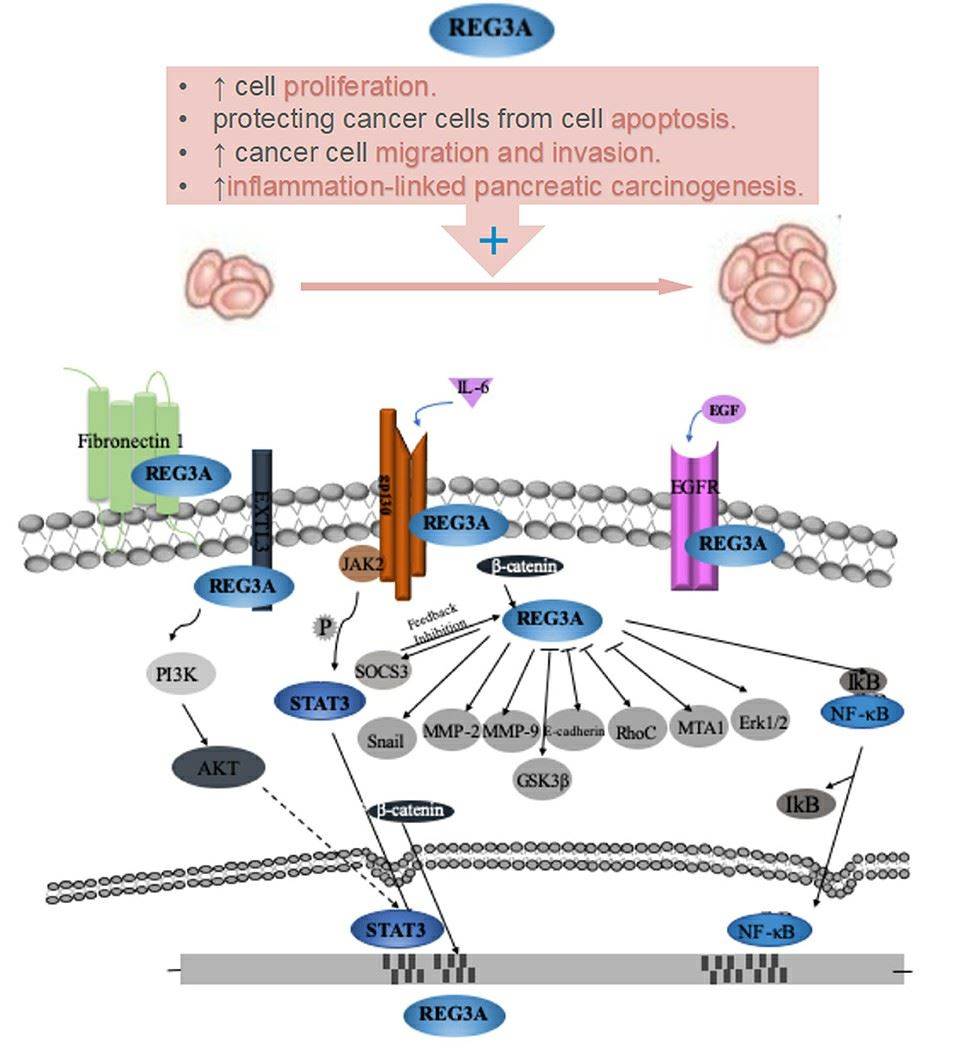What is REG3A protein?
Background of REG3A protein
The protein REG3A, also known as regenerating islet-derived protein 3-alpha, is encoded by the REG3A gene in humans. Its discovery dates to decades past, tracing its roots to studies on regenerating pancreatic islet cells. Consequently, the protein was named "regenerating islet-derived protein.” Its capacity for promoting cell growth and regeneration, particularly in the pancreas, has been an exciting focal point for researchers ever since.
The gene locus of REG3A protein is on the short (p) arm of chromosome 2 at position 12. Precisely, it is reported from base pair 79,846,112 to base pair 79,853,907 on chromosome 2. This piece of information is critical as gene loci serve as a roadmap, guiding researchers to the approximate location of a gene along a chromosome - in this case, locating the REG3A gene which is responsible for producing the REG3A protein itself.
In terms of its protein structure, the bioinformatics databases have predicted that REG3A is a secretory protein containing a signal peptide at its N terminal. The protein structure encompasses an "immunoglobulin-like" fold. It belongs to a group of small C-type lectins known as Regenerating (Reg) genes, which are involved in regeneration and proliferation of pancreatic islet cells.
Function of REG3A protein
Pertaining to its function, REG3A protein holds a specific role in anti-bacterial defense on the surface of the intestinal epithelium. It is involved in the maintenance of gut homeostasis and in inflammatory bowel diseases. It is released by gut epithelial cells in response to microbes and binds to peptides in the bacterial cell wall, contributing to the organism's defense against invading pathogens. It also plays an important role in the proliferation and differentiation of cells, specifically in the pancreas and the intestinal tract.
Regarding the line of signaling, REG3A protein binds to specific cell receptors and initiates a cascade of reactions, driving cellular responses. While these pathways remain not fully defined, it has been ascertained that they are significant for cellular defense mechanisms.

Fig1. Role and its underlying mechanisms of Reg3A for carcinogenesis of gastrointestinal cancer. (Meng-ya Zhang, et al. 2019)
REG3A protein related diseases
Moving to the domain of diseases, due to its crucial role in the body, the malfunction of REG3A protein expression is often associated with various diseases. Over-expression has been linked with pancreatic cancer, colorectal cancer, gastric cancer, and prostatitis, among others. On the contrary, its under-expression is linked with Crohn's disease and other inflammatory bowel diseases implicating its significance in maintaining a healthy gut environment.
REG3A protein's applications in biomedical.
Finally, considering its applications in biomedicine, REG3A protein is leveraged as a biomarker for certain types of cancers, including pancreatic and colorectal cancers. Its expression level can be used to predict disease prognosis in oncology. Furthermore, owing to its regenerative properties, potential applications of REG3A protein extend to the treatment of diabetes. Researchers are looking into the possibilities of stimulating the regeneration of pancreatic β cells using REG3A, promising a potential breakthrough in diabetes treatment.
In conclusion, the REG3A protein is a critical player in the human body's defense against bacterial invasion and in maintaining gut homeostasis. It exemplifies the sophistication of the body's natural defenses and its capacity to heal and regenerate itself. While its associated diseases underline its delicate role in our biological structure, its applications in the biomedical field hold promise for future precise treatments and therapies in the medical world, particularly in oncology and diabetes care.
Our Featured Products
| Cat.No. | Product Name | Species | Source (Host) | Tag |
|---|---|---|---|---|
| REG3A-2251H | Recombinant Human REG3A, GST-tagged | Human | E.coli | GST |
| REG3A-2337H | Recombinant Human REG3A, His tagged | Human | Human Cell | His |
| REG3A-1876H | Recombinant Human REG3A Protein, His (Fc)-Avi-tagged | Human | HEK293 | His (Fc)-Avi |
| Reg3a-837M | Recombinant Mouse Reg3a, His tagged | Mouse | Human Cell | His |
| REG3A-4647R | Recombinant Rat REG3A Protein, His (Fc)-Avi-tagged | Rat | HEK293 | His (Fc)-Avi |
Reference
- Meng-ya Zhang, Jun Wang, Jie Guo. Role of Regenerating Islet-Derived Protein 3A in Gastrointestinal Cancer. 2019. Front. Oncol.

